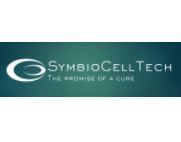
Researchers at SymbioCellTech (SCT), a private company located in Salt Lake City, have recently been getting significant press coverage in response to a paper published in Stem Cells Translation Medicine (Click here to view) in which researchers were able to "functionally" cure T1D in mice.
For the JDCA audience, a functional cure, a term used by SCT, is synonymous with a Practical Cure, defined in detail in this JDCA report.
THE SCT APPROACH
SCT uses adult stem cells to 'naturally' encapsulate insulin producing islets and create cellular clusters called 'Neo-Islets.' When transplanted into NOD mouse models, SCT found the Neo-Islets were not targeted by the mouse’s immune system and were able to achieve normal islet cell function—curing the mice. Although this research outcome is certainly promising, it is important to note that this is not the first time that T1D has been cured in mice. An accurate assessment must wait until human testing begins.
PRACTICAL CURE IMPLICATIONS
If successful in humans, there are several factors which move this into the domain of a Practical Cure. First, this therapy does not require any type of immune suppression or modification. Second, as explained in the research article, the stem cells can be sourced from non-related donors without a risk of immune attack or rejection when transplanted back into the body. Third, SCT has also developed a process in which they are able to grow 80 islet treatments from a single pancreas donor, with hopes of being able to grow up to 1,000. This process was documented in the study with both mice and canine cells and is currently being tested with human cells. Forth, SCT therapy is a one-time simple out-patient procedure.
CURRENT TESTING
SCT has already begun testing the Neo-Islet therapy in dogs and hopes to start a phase I/II human trial within one year.
On net, this is a promising project and one the JDCA will keep a close eye on as it progresses into human trials.
Link to SCT Website: http://symbiocelltech.com/
